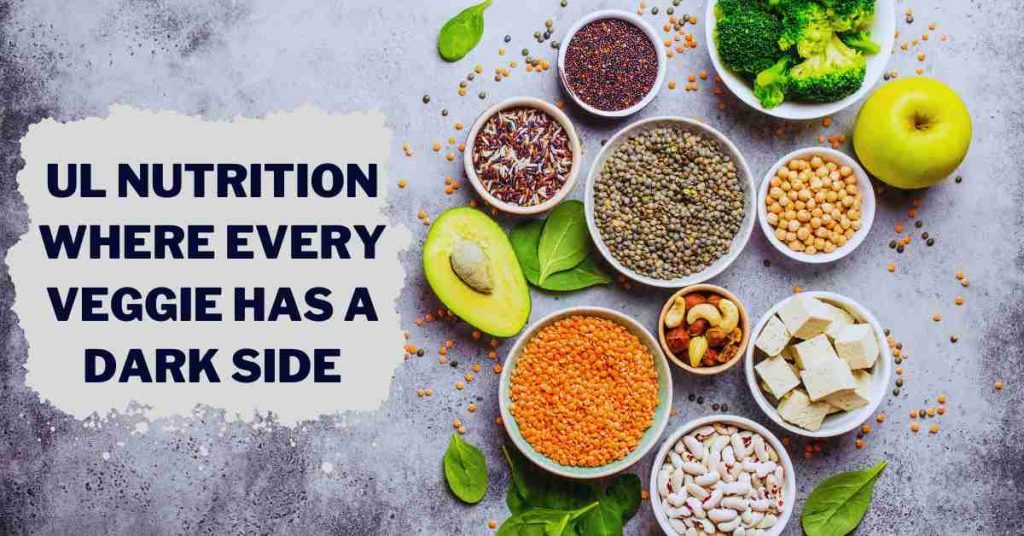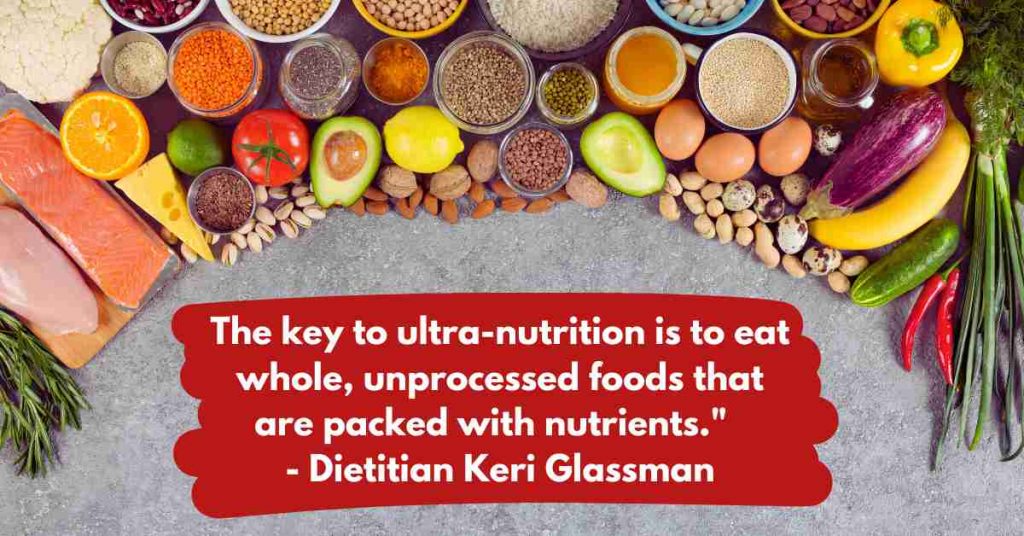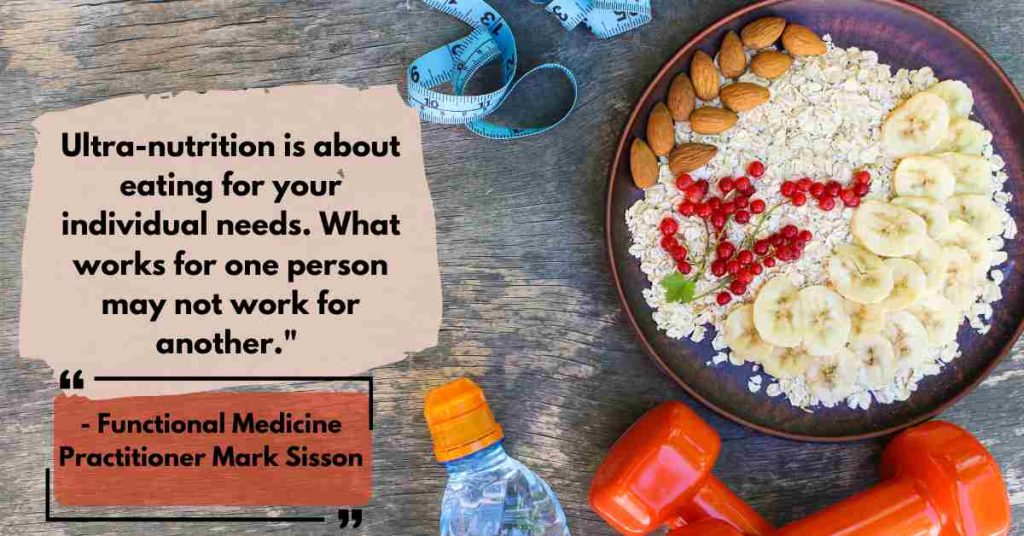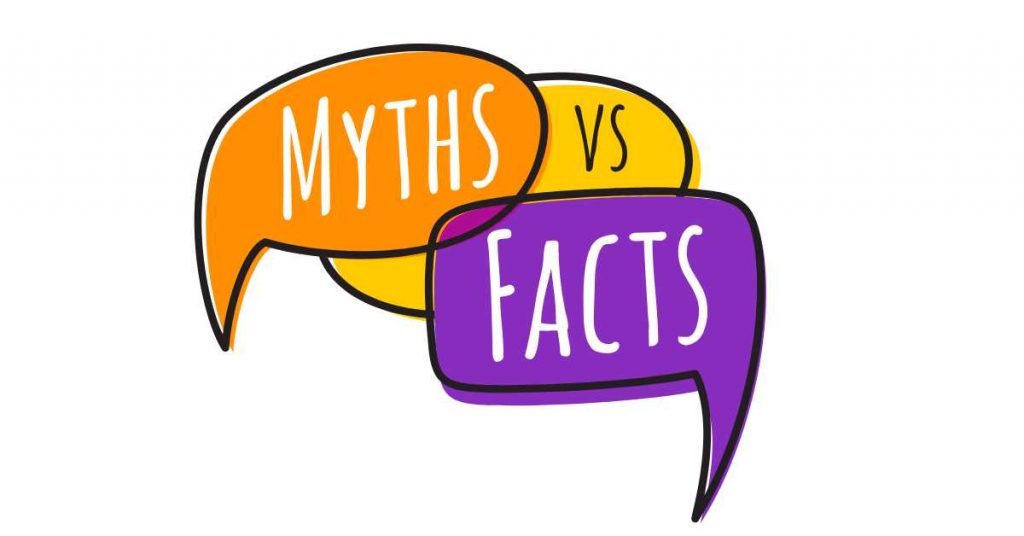Ul Nutrition Where Every Veggie Has A Dark Side

Discover the intriguing depths of Ul Nutrition, where each veggie conceals its dark side.
In the world of nutrition, the quest for healthier eating habits has led to the rise of various dietary approaches. One such approach is Ul Nutrition, which has gained popularity in recent years. Ul Nutrition focuses on consuming vegetables and their role in promoting well-being. However, not all veggies are created equal.
In this article, we will explore Ul Nutrition and delve into the dark side that lies within every veggie. From hidden dangers to potential health risks, we will shed light on the aspects of Ul Nutrition that are often overlooked. So, grab your kale smoothie and join us as we uncover the truth about Ul Nutrition.

- 1. What is Ul Nutrition?
- 2. The Rise of Ul Nutrition: A Health Craze or a Genuine Solution?
- 3. The Dark Side of Ul Nutrition: Pesticide Residues
- 4. Organic vs. Conventional: Making an Informed Choice
- 5. Balancing Health and Budget: Is Organic Always Feasible?
- 6. The Dirty Dozen and the Clean Fifteen: A Guide for Smart Shopping
- 7. Beyond Pesticides: Other Considerations in Ul Nutrition
- 8. Cooking Methods and Nutrient Retention
- 9. Variety is Key: The Importance of Diversifying Your Veggie Intake
- 10. The Role of Supplements in Ul Nutrition
- 11. Ul Nutrition for Specific Dietary Needs: Vegan and Vegetarian Diets
- 12. Ul Nutrition and Gut Health: The Microbiome Connection
- 13. Ul Nutrition and Weight Management: A Vegetable-Centric Approach
- 14. Ul Nutrition and Disease Prevention: The Protective Power of Veggies
- 15. Ul Nutrition and Mental Well-being: The Mind-Body Connection
- 16. Ul Nutrition and Children: Nurturing Healthy Habits from an Early Age
- 17. Ul Nutrition and Aging: Promoting Vitality and Longevity
- 18. Debunking Common Myths: Separating Fact from Fiction in Ul Nutrition
- Myth 1: All vegetables are equally nutritious
- Myth 2: Ul Nutrition requires consuming vegetables raw
- Myth 3: Ul Nutrition is only for vegans and vegetarians
- Myth 4: Ul Nutrition is expensive and inaccessible
- Myth 5: Ul Nutrition guarantees perfect health
- Myth 6: Ul Nutrition requires giving up all other food groups
- 19. Ul Nutrition Tips and Tricks: Enhancing Your Veggie Experience
- 20. Ul Nutrition FAQs
- Q1: Can I still consume animal products while following Ul Nutrition?
- Q2: Can I achieve sufficient protein intake through Ul Nutrition alone?
- Q3: Are there any vegetables I should avoid on Ul Nutrition?
- Q4: Can I still consume processed foods while following Ul Nutrition?
- Q5: Can Ul Nutrition help me lose weight?
- Q6: Can individuals with dietary restrictions follow Ul Nutrition?
- 21. Conclusion: Navigating Ul Nutrition with Knowledge and Awareness
1. What is Ul Nutrition?
Ul Nutrition, short for Ultra-nutrition, is a dietary approach that emphasizes consuming nutrient-dense foods, focusing on vegetables. Proponents of Ul Nutrition argue that incorporating a wide variety of veggies into your diet can provide various health benefits. From boosting your immune system to aiding in weight loss, these nutrient powerhouses are believed to be the key to optimal health.
2. The Rise of Ul Nutrition: A Health Craze or a Genuine Solution?
Ul Nutrition has gained significant attention recently, with numerous influencers, celebrities, and health experts advocating for its principles. This rise in popularity can be attributed to the increasing awareness of the importance of a well-balanced diet and the pursuit of healthier lifestyles. However, examining whether Ul Nutrition is truly a health craze or a genuine solution for improved well-being is essential.
3. The Dark Side of Ul Nutrition: Pesticide Residues
While Ul Nutrition encourages vegetable consumption, addressing the potential dark side lurking within these seemingly innocent greens is crucial. Pesticide residues, a byproduct of conventional farming practices, can be found on the surface of many commercially grown vegetables. These residues are a cause for concern as they can pose risks to human health when consumed over extended periods.
According to a study published in the journal Environmental Health Perspectives, exposure to pesticide residues has been linked to various health issues, including hormonal disruptions, neurological disorders, and an increased risk of certain cancers. The irony is that the vegetables promoted for their health benefits could harbor hidden dangers.
4. Organic vs. Conventional: Making an Informed Choice
In light of the pesticide residues found on conventionally grown vegetables, many people turn to organic produce as a safer alternative. Organic farming practices prioritize using natural fertilizers and pest control methods, minimizing exposure to harmful chemicals. By choosing organic, individuals can reduce their intake of pesticide residues and potentially mitigate the risks associated with conventional farming.

5. Balancing Health and Budget: Is Organic Always Feasible?
While organic produce offers a solution to the pesticide residue issue, it is important to acknowledge individuals' potential barriers to incorporating organic vegetables into their diet. Organic options can be more expensive and less accessible for many people. The question then arises: how can one balance health and budget while navigating the world of Ul Nutrition?
6. The Dirty Dozen and the Clean Fifteen: A Guide for Smart Shopping
To assist consumers in making informed choices, the Environmental Working Group (EWG) has developed two lists: the Dirty Dozen and the Clean Fifteen. The Dirty Dozen highlights the twelve fruits and vegetables most likely to contain pesticide residues, while the Clean Fifteen represents produce with the lowest levels of pesticide contamination. With this knowledge, individuals can prioritize buying organic products from the Dirty Dozen and opt for conventionally grown produce from the Clean Fifteen to reduce costs without compromising health.
7. Beyond Pesticides: Other Considerations in Ul Nutrition
While pesticide residues are a significant concern in Ul Nutrition, it is crucial to recognize that there are other factors to consider when adopting this dietary approach. Nutrient imbalances, food allergies, and interactions with certain medications are all aspects that deserve attention. Consulting with a healthcare professional or registered dietitian can help address these individualized considerations and ensure Ul Nutrition suits your specific needs.
8. Cooking Methods and Nutrient Retention
The way we prepare our vegetables can also impact their nutritional content. Certain cooking methods, such as boiling, can lead to a loss of water-soluble vitamins like vitamin C. On the other hand, steaming and roasting vegetables can help retain their nutrients. By adopting cooking techniques that preserve the nutritional value of vegetables, individuals can optimize the health benefits of Ul Nutrition.
9. Variety is Key: The Importance of Diversifying Your Veggie Intake
In the pursuit of Ul Nutrition, it is essential to embrace variety. Different vegetables offer unique combinations of vitamins, minerals, and phytochemicals, which can contribute to overall well-being. By diversifying your veggie intake, you can ensure that you reap the benefits of a wide range of nutrients, thereby maximizing the potential of Ul Nutrition.

10. The Role of Supplements in Ul Nutrition
Supplements have become increasingly popular in the health and wellness industry, and Ul Nutrition is no exception. While supplements can benefit individuals with specific nutrient deficiencies or dietary restrictions, they should not be seen as a substitute for a well-rounded diet. Whole foods, including various vegetables, should remain the foundation of Ul Nutrition.
11. Ul Nutrition for Specific Dietary Needs: Vegan and Vegetarian Diets
Ul Nutrition can be particularly relevant for individuals following vegan or vegetarian diets, as these choices rely heavily on plant-based foods. However, paying attention to nutrient adequacy is crucial, especially in the absence of animal products. Nutrients such as vitamin B12, iron, and omega-3 fatty acids may require special attention and must be supplemented or obtained through fortified foods to ensure optimal health.
12. Ul Nutrition and Gut Health: The Microbiome Connection
The health of our gut microbiome plays a vital role in overall well-being, and Ul Nutrition can significantly impact gut health. The fiber content in vegetables fuels the beneficial bacteria in our gut, promoting a diverse and thriving microbial community. By prioritizing various vegetables in Ul Nutrition, individuals can support their gut health and potentially reap the rewards of a well-balanced microbiome.
13. Ul Nutrition and Weight Management: A Vegetable-Centric Approach
Weight management is a common concern for many individuals, and Ul Nutrition offers a vegetable-centric approach to achieving and maintaining a healthy weight. Vegetables are low in calories and fiber, making individuals feel satisfied while consuming fewer calories. Additionally, vegetables' abundance of vitamins and minerals supports overall health, which is essential for successful weight management.
14. Ul Nutrition and Disease Prevention: The Protective Power of Veggies
Consuming vegetables has long been associated with a reduced risk of chronic diseases. Ul Nutrition's focus on vegetable intake aligns with this notion. Research has shown that a diet rich in vegetables can help prevent conditions such as heart disease, certain types of cancer, and age-related macular degeneration. By incorporating Ul Nutrition into your lifestyle, you may be able to harness the protective power of veggies and decrease your risk of developing these illnesses.
15. Ul Nutrition and Mental Well-being: The Mind-Body Connection
The impact of nutrition on mental well-being is a growing area of interest, and Ul Nutrition recognizes vegetables' crucial role in this realm. Studies have suggested a link between vegetable consumption and improved mental health outcomes, including reduced symptoms of depression and anxiety. By prioritizing Ul Nutrition and incorporating a variety of vegetables into your diet, you can support your physical and mental well-being.
16. Ul Nutrition and Children: Nurturing Healthy Habits from an Early Age
Instilling healthy eating habits in children is essential for their long-term health. Ul Nutrition provides an opportunity to introduce children to a wide variety of vegetables and educate them about the importance of nutrition. By making vegetables enjoyable and exciting, parents can lay the foundation for a lifetime of healthy choices and empower their children to embrace Ul Nutrition.
17. Ul Nutrition and Aging: Promoting Vitality and Longevity
Our nutritional needs evolve as we age, and Ul Nutrition can significantly promote vitality and longevity. The abundance of antioxidants and phytochemicals in vegetables can help combat age-related oxidative stress and inflammation. Incorporating Ul Nutrition into your lifestyle can support healthy aging and enhance your quality of life.
18. Debunking Common Myths: Separating Fact from Fiction in Ul Nutrition

With any popular dietary approach comes a fair share of myths and misconceptions. To make informed decisions, it is essential to separate fact from fiction in Ul Nutrition. Let's debunk some common myths associated with Ul Nutrition and illuminate the truth behind these claims.
Myth 1: All vegetables are equally nutritious
While all vegetables contribute to a well-rounded diet, the nutrient content can vary significantly. Some vegetables, such as kale and spinach, are packed with vitamins and minerals, while others may have a more modest nutrient profile. Embracing variety and incorporating a wide range of vegetables will ensure you obtain diverse nutrients.
Myth 2: Ul Nutrition requires consuming vegetables raw
While raw vegetables certainly have their place in Ul Nutrition, consuming all vegetables in their raw form is unnecessary. Specific cooking methods, such as steaming, can enhance the bioavailability of nutrients in vegetables. Cooking can also make certain vegetables more palatable and enjoyable, ultimately promoting adherence to Ul Nutrition.
Myth 3: Ul Nutrition is only for vegans and vegetarians
While Ul Nutrition aligns well with vegan and vegetarian diets, it is not exclusive to these dietary choices. Individuals of various dietary preferences can adopt Ul Nutrition and complement various eating patterns. The key is prioritizing vegetable intake and making it a central diet component.
Myth 4: Ul Nutrition is expensive and inaccessible
While organic and specialty vegetables can be more expensive, Ul Nutrition is not limited to these options. Many affordable and nutritious vegetables are widely available, and prioritizing the Dirty Dozen and Clean Fifteen lists can help individuals make budget-friendly choices. With careful planning and creativity, Ul Nutrition can be accessible to individuals of all budgets.
Myth 5: Ul Nutrition guarantees perfect health
While Ul Nutrition can contribute to overall well-being, it is not a magic bullet for perfect health. Genetics, lifestyle choices, and individual health conditions all play a role in determining one's health. Ul Nutrition should be seen as part of a holistic approach to wellness, which includes regular exercise, stress management, and adequate sleep.
Myth 6: Ul Nutrition requires giving up all other food groups
Ul Nutrition promotes the inclusion of vegetables in your diet but does not require eliminating other food groups. A well-rounded diet should include a balance of carbohydrates, proteins, and healthy fats alongside a generous serving of vegetables. Strive for balance and moderation, and let Ul Nutrition complement your dietary habits.
19. Ul Nutrition Tips and Tricks: Enhancing Your Veggie Experience

Embracing Ul Nutrition and making vegetables a staple in your diet can be an exciting journey. Here are some tips and tricks to enhance your veggie experience and make Ul Nutrition a sustainable and enjoyable lifestyle choice.
- Experiment with different cooking methods: Roasting, sautéing, grilling, and even incorporating vegetables into soups and stews can add variety and depth to your meals.
- Get creative with seasonings: Spices, herbs, and condiments can transform the flavor of vegetables. Experiment with different combinations to find your favorite seasoning blends.
- Try new vegetables: Venture beyond your comfort zone and explore lesser-known vegetables. Farmers' markets and specialty stores are great places to discover unique and exciting options.
- Meal prep and batch cooking: Devote some time each week to meal prep and batch cook your vegetables. This will save time and ensure you always have ready veggies for quick and healthy meals.
- Involve friends and family: Make Ul Nutrition a social experience by cooking and sharing meals with loved ones. This promotes a sense of community and provides an opportunity to inspire and motivate each other on the Ul Nutrition journey.
Sinful Nutrition is a blog and recipe website created by Emily Kyle, a registered dietitian. The blog focuses on healthy recipes that are also delicious and satisfying. Kyle believes eating healthily without sacrificing taste or enjoyment is possible.
20. Ul Nutrition FAQs
Here are some frequently asked questions about Ul Nutrition Where Every Veggie Has A Dark Side:
Q1: Can I still consume animal products while following Ul Nutrition?
A1: Absolutely! Ul Nutrition does not require the elimination of animal products. It focuses on incorporating nutrient-dense vegetables into your diet while allowing flexibility in food choices.
Q2: Can I achieve sufficient protein intake through Ul Nutrition alone?
A2: While vegetables can contribute to your protein intake, it may be necessary to incorporate other protein sources such as legumes, tofu, tempeh, and lean animal proteins to meet your needs. Balancing your meals with a combination of protein-rich foods will ensure adequate protein intake.
Q3: Are there any vegetables I should avoid on Ul Nutrition?
A3: Generally, no vegetables need to be avoided on Ul Nutrition. However, individuals with specific dietary restrictions or allergies should be mindful of their unique needs and consult a healthcare professional or registered dietitian for personalized guidance.
Q4: Can I still consume processed foods while following Ul Nutrition?
A4: Ul Nutrition encourages the consumption of whole, nutrient-dense foods, including vegetables. While processed foods can be enjoyed in moderation, it is important to prioritize whole foods to maximize the health benefits of Ul Nutrition.
Q5: Can Ul Nutrition help me lose weight?
A5: Ul Nutrition, focusing on vegetable intake, can be a beneficial approach for weight management. The low-calorie and high-fiber nature of vegetables can help individuals feel full and satisfied while consuming fewer calories. However, adopting a holistic approach to weight loss is essential, including regular physical activity and mindful eating practices.
Q6: Can individuals with dietary restrictions follow Ul Nutrition?
A6: You can adapt Ul Nutrition to accommodate gluten-free, dairy-free, and nut-free diets. By carefully planning and considering individual needs, you can tailor Ul Nutrition to suit your dietary preferences and restrictions.
Ul Nutrition offers a promising approach to achieving optimal health through the power of vegetables. Individuals can make informed choices that align with their health goals and budget by prioritizing nutrient-dense, organic options and understanding the potential risks associated with pesticide residues. Remember to embrace variety, experiment with cooking methods, and seek professional guidance when needed. Ul Nutrition is not a one-size-fits-all approach but a journey you can customize to suit your unique needs and preferences. So, let every veggie have a dark side as you navigate the world of Ul Nutrition and unlock the transformative potential of plant-based nutrition.
I hope this article regarding Ul Nutrition, Where Every Veggie Has A Dark Side, will help you the most. In the comment section, please submit your questions about Ul Nutrition, Where Every Veggie Has A Dark Side.

Recommendation